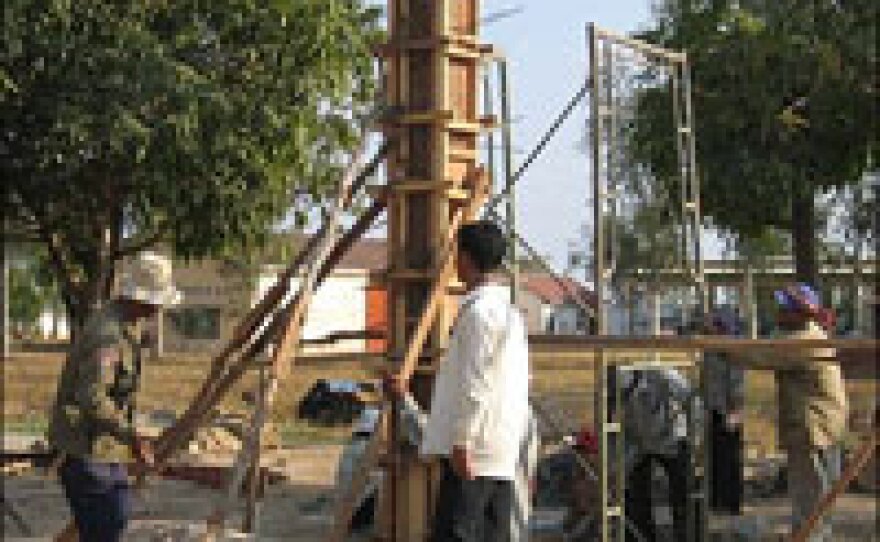
After a decade of negotiations, uncertainty still surrounds joint U.N.-Cambodian tribunals for leaders of the Maoist Khmer Rouge, which ruled the country from 1975 to 1979.
The Khmer Rouge is responsible for the deaths of nearly 2 million Cambodians, through execution, torture, starvation or disease.
The major sticking points appear to be the scope of the indictments and what role foreign lawyers will play in defending the accused.
If these issues aren't resolved in the next few weeks, some court officials say there is a 50-50 chance the U.N. could pack up and leave.
Some observers say the impasse is a result of the Cambodian government's desire to control — or limit — the scope of the investigation and the number of indictments, in a country where political interference in the courts is common.
During the four years of the Khmer Rouge regime, Cambodia's cities were emptied and their residents were forced to labor in the fields as part of the group's effort to create an agrarian utopia.
Copyright 2022 NPR. To see more, visit https://www.npr.org. 9(MDAzMjM2NDYzMDEyMzc1Njk5NjAxNzY3OQ001))







